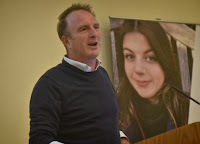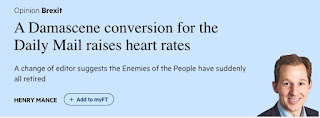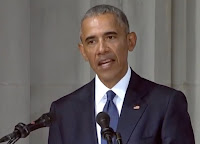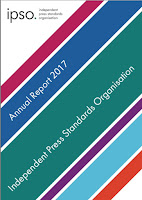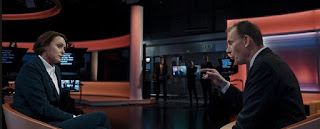Jeremy Corbyn in his Labour Party conference speech: "Journalists from Turkey to Myanmar and Colombia are being imprisoned, harassed or sometimes killed by authoritarian governments and powerful corporate interests just for doing their job. But here, a free press has far too often meant the freedom to spread lies and half-truths, and to smear the powerless, not take on the powerful."
- Emily Bell @emilybell on Twitter: "Disappointing Jeremy Corbyn doesn’t seem to know (or doesn’t care) that attacks on journalists in the parts of the world he namechecks are often justified by pointing to press criticism from leaders such as himself and Donald Trump in western democracies."
- Jane Merrick @janemerrick23 on Twitter: "Jeremy Corbyn lecturing the British press about "failing to take on the powerful" when he's appeared on Press TV and Russia Today is a bit bloody rich."
Alan Rusbridger on ex-Sun editor Kelvin MacKenzie, in his new book Breaking News: "Today, MacKenzie's 13-year dominance at the paper seems an era of considerable bigotry, cruelty and prejudice rather than wit, brio and much-envied (and imitated) professionalism. There are editors, then and now whose behaviour would - in any other context - seem borderline unhinged. They appear, to an outsider, worryingly aggressive and obsessive. They seem to derive pleasure from threatening, humiliating, harassing or intimidating their targets. A newspaper is probably the last institution or organisation in the democratic world where such people would be allowed to operate with quite so little scrutiny or redress."
From HoldTheFrontPage: "A police force says it is unable to confirm that armed officers arrested a publisher over suspected “hate crimes” – despite his own newspaper covering it on its front page. Danny Lockwood, publisher of Dewsbury weekly The Press, splashed on his own arrest in Friday’s edition after being stopped by police as he drove to work last Monday. According to The Press, he was then questioned about three hate crimes at Dewsbury MP Paula Sherriff’s office, which are thought to involve swastikas being deposited at her doorstep. Danny has denied any involvement in the alleged incidents, while Ms Sherriff has publicly stated she has 'no reason' to suspect he was involved."
The News Media Association in its submission to the Cairncross Review into the future of sustainable journalism: “The primary focus of concern today is the loss of advertising revenues which have previously sustained quality national and local journalism and are now flowing to the global search engines and social media companies who make no meaningful contribution to the cost of producing the original content from which they so richly benefit...Introduce a fair, open and equitable content licence fee agreement, supported by a UK Publishers Right, enabling the tech companies to demonstrate the value they extract and to pay for the content from which they benefit, without discrimination between news publishers."
News Media Association chief executive David Newell in The Times [£]: "Publishers should be fairly rewarded so that they can continue to maintain independent journalism. But the rise of the internet, and in particular its two dominant platforms, has snapped the relationship between the content creators and revenues. News media journalism has never been more in demand, reaching greater audiences than ever before across print and digital platforms. Yet between them Google and Facebook, which produce no original news content yet benefit greatly from it, are siphoning off all the growth in digital revenues by making money out of our content without any fair exchange. Not only is this fundamentally unjust, it poses a direct threat to the sustainability of journalism."
The NUJ in its submission to the Cairncross Review: "The NUJ is calling for an economic stimulus plan for the media including arms-length government subsidies, the strategic use of central and local government advertising, tax credits, tax breaks, and a combination of funding such as grants, loans and community-share schemes. Any new funding available must be attached to specific objectives and criteria. This should include a range of commitments to quality and ethical standards. Organisations that systematically cut corners and rely upon free content and user-generated pictures should not be entitled to receive any public subsidy, funding or support."
James Harding, giving the inaugural Journalists' Charity lecture on his new media venture Tortoise, which will offer a slower supply of news sourced from experts across a wide range of fields: "We’re trying to see how we might think about opening up journalism, how we might think about systems of organised listening in every form, whether that’s in live open leader conferences but also in forms of digital journalism."
Ewen MacAskill interviewed in the Guardian on retiring from the paper after 22 years: "Kath Viner joined a few months after me and rose to become editor-in-chief. I stayed as a reporter but I think I got the better deal. Reporters have more fun."
[£]=paywall








